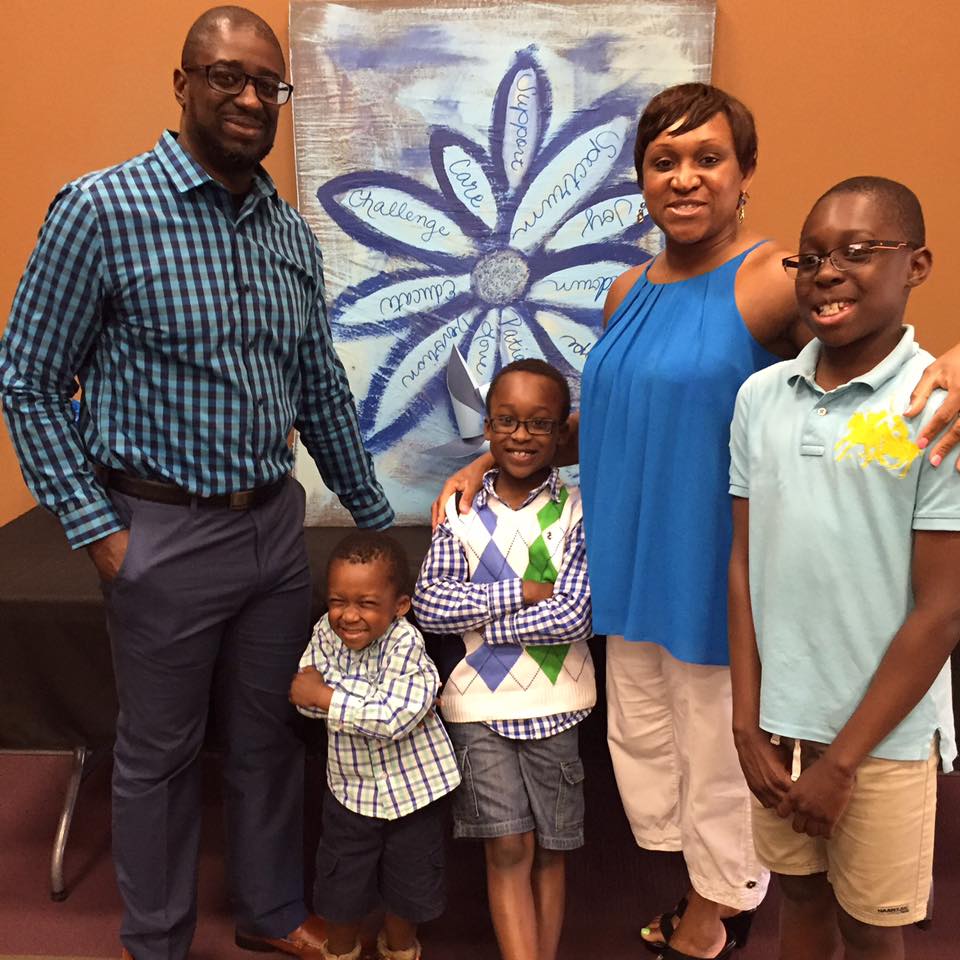I am an avid reader. I read tons of books and even more blogs. As someone who considers himself to be a part of the special needs community, I read a lot of blogs about special needs families. Over the last two years, I’ve discovered there is a wealth of resources and reading material for parents who have children with special needs. As a result, the term “special needs parent” has become almost synonymous with that scenario.
I applaud and admire those parents and caregivers. They do a tremendous job and deserve to be recognized. All the parents I know who have children with special needs do it because they are parents. That is their child. That is their reason. That is their motivation.
With that being said, there is an entirely different population of special needs parents out there who can sometimes be overlooked and underappreciated. They are the parents like me, parents who don’t have a child with special needs. Instead, we are special needs parents because we are parents and we have a disability. There are many parents with disabilities that care very deeply and passionately about our children. The primary difference is that we are special needs parents because we are caregivers who at times need a little extra care ourselves.
In 2014 at age 36, I was diagnosed with ASD (autism spectrum disorder). I had a family, a career, and three children when I was diagnosed. I also had lived my entire life struggling with something that was both unknown and unnamed. From the outside looking in I was a regular guy to most, but to those who knew me well, like my wife of 15 years, there was an obvious struggle.
I have to admit that I have been blessed. My wife is an amazing woman who is extremely supportive. Since my diagnosis, we have embarked on a journey of discovery that has made life as a husband and father less complicated for me. We have learned how to allow me to slowly deal with my limitations while still being the best father I can be to our three beautiful boys.
Special needs parenting and being a special needs parent both require passion and persistence, but being a parent with special needs has taught me four ways spouses and co-parents can help provide an environment where we can participate in raising our children with the passion and love they deserve.

1. Understand our capacity. Life on the autism spectrum can be a roller coaster for me at times. To be honest, I’m not always sure when I will be up to performing some of the social tasks of fatherhood. Both my wife and all of our children are extremely outgoing. They love to hang out at the pool, walk around the mall for hours, and go out into the world with absolutely no agenda except to hang out all day. I have social anxiety, and I usually have the capacity to hang for about 2-3 hours before I have stepped over my limit. My wife understands that, so together we organize activities differently. For example, they may plan a trip out on the town, and I may join them around lunchtime to continue the day with them when I am ready to hang out. This strategy has worked very well for us.
2. Learn to take our cues. ASD sometimes limits my ability to pick up on social cues. Sometimes the world can be complicated, because I may miss important cues. Neurodiverse minds also have a system of social cues, and because most human communication is non-verbal, we must both realize that we are both constantly communicating through a system of social cues. My wife doesn’t just depend on me to pick up on neurotypical social cues; she has learned to pick up on my cues as well. This has been extremely important in our ability to parent together, because she is able to understand the things I am sometimes unable to verbally communicate.
3.Use creativity. Autism is a part of my neurology. My brain simply sees things in a completely different way. It is not always a matter of personal preference. While this is an unchangeable reality, the advantage is that it can enhance our parenting skills, and provides our children with a very creative environment to grow up in. In addition to our different personalities, our brains function quite differently. Our approach to
parenting must be unconventional. There are no “traditional” roles in our home, because we can’t afford to box ourselves in. Because of neurodiversity, our family is extremely creative in how we approach everything, from disciplining the kids to how we vacation.
4. Allow us to have some control. One of the misconceptions about people with autism or special needs is that they are incapable of handling certain tasks. While I admit there are a few things I struggle
with, I also have many strengths. I am not advocating for the right to be controlling, but I have found it helpful to allow the special needs parent to have major influence in their areas of strength. For example, as a person on the autism spectrum, I can be very detailed with certain tasks. Time is one of them. I am almost never late to anything, because I have an internal clock in my mind. While my wife and I do not share the same sense or sensitivity to time, we find that it is much better to allow me to have a major influence on time and schedule sensitive issues such as getting the kids off to school, getting the kids ready for bed at their designated bedtime, or even planning out-of-town trips. Being late to something isn’t always a bad thing, but being on time is always a good thing so it’s OK to let me take the lead on those
types of issues.
Parents of children with special needs answer the call every day to love and be caregivers for their children. For that I am grateful, but I am also eternally grateful for those of us who are special needs parents because we have disabilities. We too answer the call every day to care for our children, as we live life with our own
distinct needs and challenges, as well as our own distinct gifts and graces.

